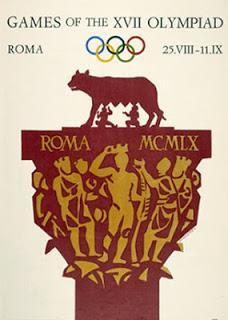In the beginning was architecture. The Eternal City offered a brilliant mix. On the one hand, organizers incorporated ancient monuments like the Basilica di Massenzio (wrestling), the Terme die Caracalla (gymnastics), and the Via Appia Antica (marathon/pictures: Getty, romemuseums.eu).
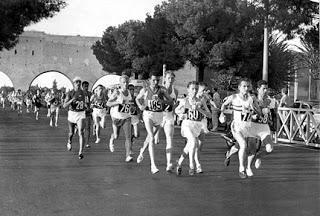
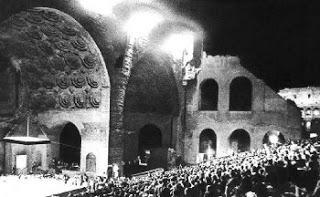
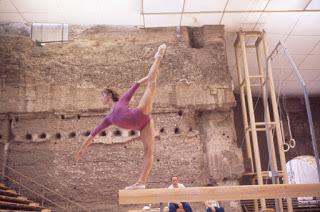
On the other side, the venues included groundbreaking architecture like the Palazzetto dello Sport (weightlifting and basketball) and the Palazzo dello Sport both constructed by Pier Luigi Nervi (boxing/pictures: Getty/roma1960.it).
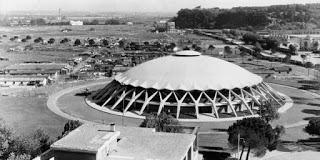
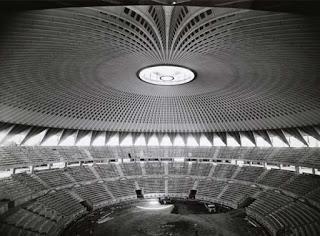
The idea to stage competitions against the backdrop of traditional or landmark sites has often been copied later, mainly due to television. In that matter, the 1960 Games were ahead of their times. They were the first to be televised world wide on a grand scale, with the rights selling for $1.2 million. More than 70 hours of footage has survived in archives. When Abebe Bikila won the legendary marathon race barefoot, the cameras were placed exactly at the historic sites the runners passed by, starting at the Colosseum and culminating in the dramatic finish beneath the Arch of Constantine:
While Bikila's triumph marked the beginning of the era of Africa''s long distance running domination, Rome saw the birth of many superstars who were the first to become so thanks to exploding media attention. German Armin Hary crushed U.S. domination of sprinting, winning two gold medals. Three wins recorded Wilma Rudolph in the women's sprint, becoming one of the the first black female sports icons. The decathlon battle between eventual winner Rafer Johnson and Taiwan's Yang Chuan-Kwang fascinated the masses. While Germany ruled the waves in rowing, with her coaxed eight ending U.S. supremacy, Italy kept home all but one cycling gold.
Cycling was also the sport that offered a first glance at the sinister era of drug abuse that was just to begin. Denmark's Knut Enemark-Jensen fell of his bike during the time trial on the road and died hours later. The rumor's about his death being caused by amphetamine's were never fully proven, but the incident put doping on the IOC's agenda - where it has stayed until today.
Not to be misunderstood, politics were also all over Rome 1960, as it was normal during the Cold War. Russians and Americans battled it out on the playing field, Germany's unified team was a difficult matter as always, South Africa made its last appearance for decades, and Taiwan marched with an "Under protest" sign at the opeing ceremony, because it was forced to participate under the name of "Taiwan" instead of "China" due to political pressure from the communist bloc (picture: Getty).
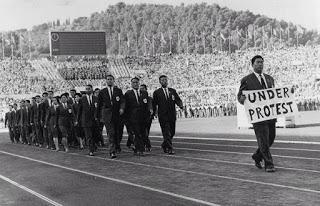
The most enduring images of the epic 1960 Olympics were those of a young boxer from Louisville, KT: Cassius Marcellus Clay won his gold medal easily, kicking off a professional career that made him "The Greatest". Here are scenes from his gold medal bout:
"The Greatest" took home his Olympic gold from the Eternal City - and from the best Games ever.
